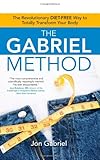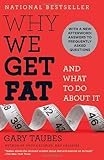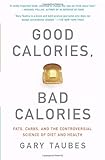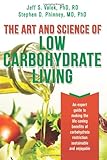I know that I’m a bit of a pedantic thinker, but I am getting fed up with people who say that diets don’t work, especially when they don’t define what they mean by the word “diet”. So let’s start with where the word comes form:
The term … is derived from Medieval Latin dieta, meaning both “parliamentary assembly” and “daily food allowance”, from earlier Latin diaeta transcribing Classical Greek δίαιτα diaita, meaning “way of living”, and hence also “diet”, “regular (daily) work”.
That’s from the on-line etymological dictionary, by way of Wikipedia. And looking at that, it’s not unreasonable to take the meaning of the word from the dictionary:
di·et
noun
1. food and drink considered in terms of its qualities, composition, and its effects on health: Milk is a wholesome article of diet.2. a particular selection of food, especially as designed or prescribed to improve a person’s physical condition or to prevent or treat a disease: a diet low in sugar.
3. such a selection or a limitation on the amount a person eats for reducing weight: No pie for me, I’m on a diet.
4. the foods eaten, as by a particular person or group: The native diet consists of fish and fruit.
5. food or feed habitually eaten or provided: The rabbits were fed a diet of carrots and lettuce.
So, by and large, “diet” means “what we eat”. So what does the phrase “diets don’t work” mean? It can’t mean “don’t eat anything”, a) because that’s silly, and b) because, logically, even if you’re on a hunger strike and have decided not to eat anything, that’s still your diet.
And we haven’t defined “don’t work”, either. I think what people who say this are trying to say is:
“restricting the amount of food you eat, as a way of losing weight, is ineffective”.
Well, you could argue against that, too. If you are strong-willed enough then, at least for a while, you will lose some weight. You’ll probably (almost definitely) put it all back, and then some, and if you are very strong-willed, and manage to restrict what you eat for a significant amount of time, you will probably damage your health.
So let’s define our terms for this blog. The blog is called “Live Free From Obesity”, and maybe I should have also said “and its co-morbidities”, because it’s possible (a good friend of mine has done it) to lose sufficient weight to no longer be considered obese (she’s got her BMI down to 25), but still have metabolic syndrome. Her blood sugar is dangerously high, her blood pressure is also high, and she still has abdominal fat, and our business here is to help people deal with all these problems.
Clik here to view.

Jon Gabriel before and after
My chief protagonist in the “diets don’t work” wars is Jon Gabriel: he says it over and again in his book, The Gabriel Method, but I think it’s only said for effect, because Jon very definitely recommends changes you can (and should, for the sake of good health) make in the way you eat: he is recommending a different diet from the one that you are probably on.
However, his recommendation is radical. What he says is, don’t deliberately cut out anything from what you currently eat. He recommends starting to add in some extra “good stuff”, and he recommends doing some work on those conditions in your life that are causing you to be fat. As he would put it, the conditions that are causing your body to want to be fat. He says that when you do that, you will begin to automatically drop the foods that make you fat. It won’t be a matter of willpower; it will just happen. He gets you to work on your mind, and I certainly don’t have a problem with that.
You will find yourself just naturally changing to a different diet.
So maybe what Jon should be saying is:
“dietary regimes which require you to force yourself, against your body’s own bio-chemistry, to restrict your food intake, in order to lose weight, will, over the long term, be ineffective and probably counter-productive”.
OK, I admit that isn’t as snappy as “diets don’t work”, but at least we know what we’re talking about now!
Image may be NSFW.
Clik here to view. I read Gabriel’s book immediately after reading Gary Taubes, and Gary had so switched me on to clear, logical thinking, doing good science, and writing very clearly, that anyone that I subsequently read would suffer in comparison. In fact Gary’s book effectively gives us the science behind Robert Atkins’ diet, so I read Atkins’ “New Diet Revolution”. Because Taubes had persuaded me of the science, I kept going through to the end, but if I hadn’t read Taubes first I would have thrown the Atkins book into the bin. Too much anecdotal evidence, and too much blowing of his own trumpet, and not very well written, so it just irritated me. But there was some good stuff there.
I read Gabriel’s book immediately after reading Gary Taubes, and Gary had so switched me on to clear, logical thinking, doing good science, and writing very clearly, that anyone that I subsequently read would suffer in comparison. In fact Gary’s book effectively gives us the science behind Robert Atkins’ diet, so I read Atkins’ “New Diet Revolution”. Because Taubes had persuaded me of the science, I kept going through to the end, but if I hadn’t read Taubes first I would have thrown the Atkins book into the bin. Too much anecdotal evidence, and too much blowing of his own trumpet, and not very well written, so it just irritated me. But there was some good stuff there.
And because I had watched the Hungry for Change video (watch a trailer below)
http://www.youtube.com/watch?v=7-WWp9wlvwU
and heard Jon say that he had had a stand up fight with Atkins in his office, I felt the need to get his book and see what the fuss was about. Well, Jon also suffered a little by closely following Taubes in my reading list (pretty much anyone would), but he has some good things to say, and his testimonials, and his own example suggest that his method works. After all, in the latest edition of his book and on his website he says that 350,000 people have read his book. And he tells us (from a sample of one … himself) that the Atkins diet doesn’t work.
On the other hand, Atkins tells us that, from an exactly similar sample of one (himself) it does work … and as his first book was published in 1972, some time after he was using the method with his own patients, he has probably got a larger anecdotal database, and more testimonials than Gabriel.
Many years ago the founders of Neuro-Linguistic Programming (Richard Bandler and John Grinder) would introduce classes on hypnotherapy by one of them saying that “everything is hypnotism” and the other saying “there’s no such thing as hypnotism”.
By the same token I think we can probably say of almost any dietary regime, “this diet doesn’t work” and, at the same time, “this diet does work”. Depends what you mean by “work” and depends what group of people you are talking about, and, I suspect, who it is that’s pushing the diet.
My experience of NLP was that sometimes it worked, and sometimes it didn’t. When I finally stopped going to NLP classes run by lesser mortals and went and got trained by Bandler himself I realised that a key factor that no-one mentioned was the powerful personality and charisma of the practitioner … and there are few people in the world whose personality and charisma outweigh that of Richard Bandler.
I haven’t met Jon Gabriel, but I have read his book, watched him on the Hungry for Change video, and on video clips on his own website. He’s no retiring wallflower! And he believes passionately in what he is doing, which is, I believe, another key factor. I also notice that in most of his testimonials he either appears with the person who has lost weight, or has obviously worked with them. I’m not decrying the method because of that, simply saying that if you can work one-to-one with him I believe you’re more likely to achieve success than if you just buy the book. If you want to see more of him, this “Jon Gabriel You Tube link” will show you a number of videos featuring him.
So, both Gabriel and Atkins (and probably every other diet writer on the planet) has some anecdotal evidence (probably quite a lot of anecdotal evidence) that their diet (or method) works, and other people’s don’t. It occured to me to wonder if we could learn anything from Amazon.com sales ranks, and was fascinated by these results:
Image may be NSFW.
Clik here to view. Atkins: Amazon Best Sellers Rank: #7,246 in Books
Atkins: Amazon Best Sellers Rank: #7,246 in Books
#33 in Books > Cookbooks, Food & Wine > Special Diet > Low Carbohydrate
Image may be NSFW.
Clik here to view. Gabriel: Amazon Best Sellers Rank: #8,369 in Books
Gabriel: Amazon Best Sellers Rank: #8,369 in Books
#47 in Books > Religion & Spirituality > New Age > Mental & Spiritual Healing
Image may be NSFW.
Clik here to view. Taubes: Why We Get Fat: Amazon Best Sellers Rank: #607 in Books
Taubes: Why We Get Fat: Amazon Best Sellers Rank: #607 in Books
#2 in Books > Health, Fitness & Dieting > Diets & Weight Loss > Food Counters
#9 in Books > Cookbooks, Food & Wine > Special Diet > Low Carbohydrate
#21 in Books > Health, Fitness & Dieting > Exercise & Fitness
Image may be NSFW.
Clik here to view. Taubes: Good Calories — Bad Calories: Amazon Best Sellers Rank: #2,002 in Books
Taubes: Good Calories — Bad Calories: Amazon Best Sellers Rank: #2,002 in Books
#12 in Books > Cookbooks, Food & Wine > Special Diet > Low Fat
#41 in Books > Medical Books > Medicine > Internal Medicine
#53 in Books > Health, Fitness & Dieting > Nutrition
Much as I love Taubes’ writing, I just didn’t expect to see him so far ahead of both Atkins and Gabriel … even for his massive tome, Good Calories — Bad Calories.
So, my conclusion in all this is the same one I began this whole website with:
- You will need to change what you eat, but hopefully the change will happen naturally when you change what you think.
- You will need active and trained support from other people when you change what you think
- You will need and want to do some exercise, but hopefully that will happen naturally, too!
You pays your money and takes your choice!
BTW. The New Atkins book was written by Phinney and Volek, who have their own books out:
Image may be NSFW.
Clik here to view. Image may be NSFW.
Image may be NSFW.
Clik here to view.












